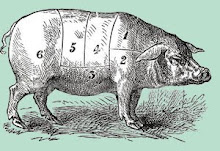"Pumped Up" by Ron Klain
Ron Klain was a member of Bill Clinton’s 1992 campaign policy and debate preparation staff.
The Republican machinations of the last two weeks in the presidential campaign have a certain déjà vu quality to them: Charlie Black is again warning us of a possible terror attack, commentators are stoking up fears among gun owners and critics are trying to make Barack Obama look like he’s soft on crime and elitist. Serving up this stew of scares, social issues and slander delivered the White House to the G.O.P. in 2000 and 2004: Will it work again?
I don’t think so. While the pundits and analysts spin elaborate campaign scenarios and analyses, this year you can cut through all that stuff and boil the campaign down to a single sentence: If gas is still more than $4 a gallon on Election Day, there is no way a Republican will continue to control the White House. All the lapel-pin, Internet-rumor, orange-alert, character-smear, gays-’n'-guns, ground-game efforts by the G.O.P. cannot possibly overcome the stark reality of $4 a gallon for gas.
I know it seems simplistic, but the reality of high gas prices touches many nerves — some obvious, others less so — that yield the irresistible outcome I’m suggesting.
First, there are the raw economic and financial consequences for most Americans. There is a long tradition in democracies of voters being driven by price increases in key commodities: the French Revolution was fueled by the soaring price of bread, and our colonial forefathers were riled by a tax on tea. For 21st century Americans, nothing is more vital than gasoline. Even more than any particular food item, gasoline is the essential commodity that takes Americans to work, brings their goods to market and powers their recreation. The hit on American’s pocketbooks is huge, and when one adds the many indirect effects (everything from higher prices on goods transported by truck, to job losses in fuel-driven industries, to plummeting resale values on used S.U.V.’s), high gas prices hit more people, more deeply, than almost any other economic phenomenon short of a depression. Pinched and angry voters are change voters, plain and simple.
continued here...

No comments:
Post a Comment